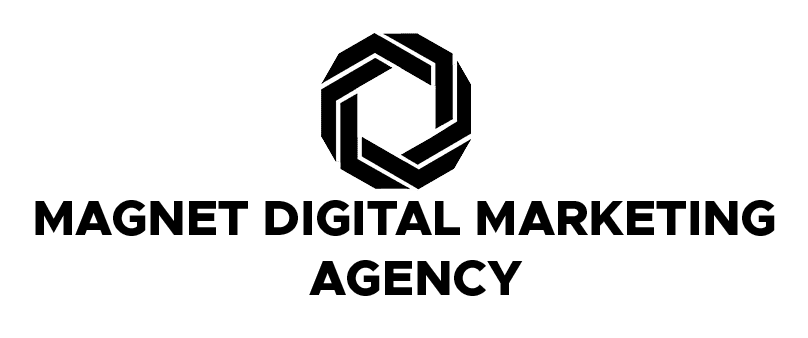Digital marketing has transformed the way businesses reach and engage with their audience. It has become crucial for any business seeking growth and success in the modern marketplace. Understanding what digital marketing is lays the foundation for understanding how it works.
So, what is digital marketing? In simple terms, digital marketing is the use of the internet and other forms of communication by people and brands to connect with their target audience. These digital forms of communication include social media, emails, websites, web chats, and many more.
The Fundamentals of Digital Marketing: An In-Depth Overview
Digital marketing encompasses several key components, each crucial for connecting businesses with their target audience. Here’s a comprehensive look at the main forms of digital marketing:
Content Marketing
Content marketing involves creating and distributing valuable, relevant, and consistent content to attract and retain a clearly defined audience. This content can take various forms, including blog posts, articles, videos, infographics, podcasts, and e-books.
By offering insightful and educational content, businesses can establish authority and credibility within their industry. Content marketing not only drives traffic to the website but also nurtures leads and builds lasting relationships with customers.
Search Engine Optimization (SEO)
SEO is the practice of optimizing websites and content to rank higher in search engine results pages (SERPs) for relevant keywords. It involves on-page optimization (e.g., keyword research, meta tags, content optimization) and off-page optimization (e.g., backlink building, social media signals).
Effective SEO not only increases online visibility and organic traffic but also enhances brand credibility by positioning the business as a trusted authority in its field.
Social Media Marketing
Social media marketing utilizes platforms like Facebook, Instagram, Twitter, LinkedIn, and others to connect with the target audience. It involves creating and sharing content, engaging with followers, running paid ads, and analyzing results to optimize campaigns.
 By fostering direct interaction with customers and providing valuable content, social media marketing builds brand awareness, drives website traffic, and fosters community engagement, thereby strengthening customer relationships.
By fostering direct interaction with customers and providing valuable content, social media marketing builds brand awareness, drives website traffic, and fosters community engagement, thereby strengthening customer relationships.
Email Marketing
Email marketing involves sending targeted messages to a subscriber list to nurture leads, retain customers, promote products or services, and drive conversions. It includes personalized newsletters, promotional offers, product updates, and event invitations.
By delivering relevant and timely content directly to subscribers’ inboxes, email marketing enhances customer loyalty, increases repeat purchases, and drives revenue growth through effective segmentation and personalized communication.
Pay-Per-Click Advertising (PPC)
PPC advertising involves placing ads on search engines (like Google Ads) or social media platforms (like Facebook Ads) and paying a fee each time someone clicks on the ad. It allows businesses to bid on keywords relevant to their target audience and display ads to users searching for related products or services. PPC campaigns deliver immediate visibility and targeted traffic, ensuring businesses reach their ideal customers with precision and achieve measurable results in real-time.
Affiliate Marketing
Affiliate marketing is a performance-based marketing strategy where businesses reward affiliates (publishers or influencers) for driving traffic or sales to their website through affiliate links or promotional content.
By leveraging the reach and influence of affiliates, businesses can expand their market reach, increase brand exposure, and drive sales without upfront costs. Affiliate partnerships enhance brand credibility through trusted third-party endorsements, fostering consumer trust and loyalty over time.
Influencer Marketing
Influencer marketing involves collaborating with individuals who have a large and engaged following on social media or other digital platforms. Influencers create authentic content that promotes a brand’s products or services to their audience, leveraging their credibility and influence to drive brand awareness and sales.
By partnering with influencers whose audience demographics align with their target market, businesses can achieve targeted reach, improve brand visibility, and build meaningful connections with potential customers.
Video Marketing
Video marketing uses engaging video content to convey brand messages, showcase products or services, and connect with the audience on a deeper level. Platforms like YouTube, Facebook, Instagram, and Tiktok offer opportunities to share tutorials, product demonstrations, customer testimonials, and live streams.
Video content enhances SEO efforts, increases website engagement, and humanizes the brand by delivering compelling visual narratives that resonate with viewers and encourage action.
Read Also
Is It Worth to Pay for Digital Marketing?
Conclusion
Understanding and implementing a comprehensive digital marketing strategy is essential for business success in today’s competitive landscape. By leveraging SEO, social media marketing, content marketing, email marketing, PPC advertising, affiliate marketing, influencer marketing, and video marketing effectively, businesses can connect with their target audience, drive website traffic, increase sales, and foster long-term customer loyalty through meaningful engagement and strategic communication.
 seolounge
seolounge





Leave a Reply